From Our Daily Report
-
The Zapatista rebels in Mexico's southern state of Chiapas marked the anniversary of their 1994 New Years Day uprising by hosting a national activist gathering in their territory.
-
Two Guantánamo detainees scheduled for release boarded a plane for transfer to third countries—while a third refused, demanding repatriation to his native Yemen.
-
Saudi Arabia carried out at least 157 executions in 2015, with beheadings reaching their highest level in the kingdom in 20 years—overwhelmingly for non-lethal offenses.
-
Israel is set to declare 1,500 dunams (370 acres) in the West Bank district of Jericho as "state land"—the largest such grab in two years, decried as a step towards annexation.
ETHNIC 'DIVIDE AND CONQUER' IN ISRAEL
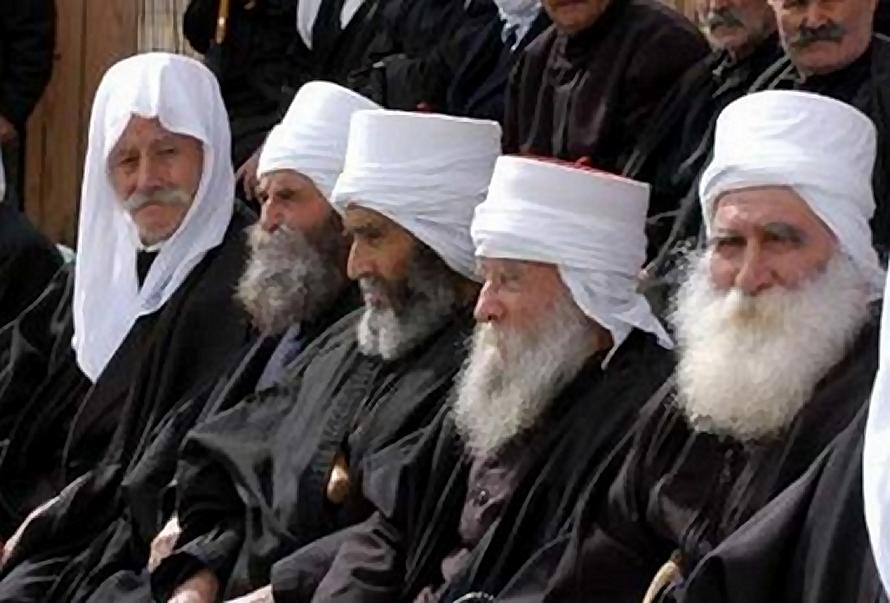
by Chloe Benoist, Ma'an News Agency
BETHLEHEM — A plan approved by Israel's cabinet last week to provide half a billion dollars worth of assistance to Israel's Druze and Circassian minorities has been denounced by leaders of Israel's Palestinian community as a "divide and conquer" tactic. Israeli Prime Minister Benjamin Netanyahu announced the 2 billion shekel ($510 million) multi-year plan "for the development of the Druze and Circassian communities" at the start of the weekly cabinet meeting on Jan. 10. The plans followed the earlier announcement of a 15 billion shekel ($3.8 billion) five-year plan to address the gaps in access to infrastructure and discrepancies in rights between Palestinians with Israeli citizenship and their Jewish counterparts.
While it was not initially clear whether the assistance to the Druze and Circassian communities was included in this larger plan, Netanyahu warned separately that day that the larger plan for the development of other "Arab communities" was dependent on the implementation of a law enforcement plan alongside it. "I want to make it clear that nothing that has been done in various areas—infrastructure, tourism, education, trade, economy—can move forward if we do not address the question of enforcing the laws of the state of Israel in the Arab sector," the prime minister said.
The further security measures proposed by Netanyahu would target Palestinian citizens of Israel—who represent an estimated 20 percent of the Israeli population—but would, critics say, do so unequally.
THE SIEGES IN SYRIA
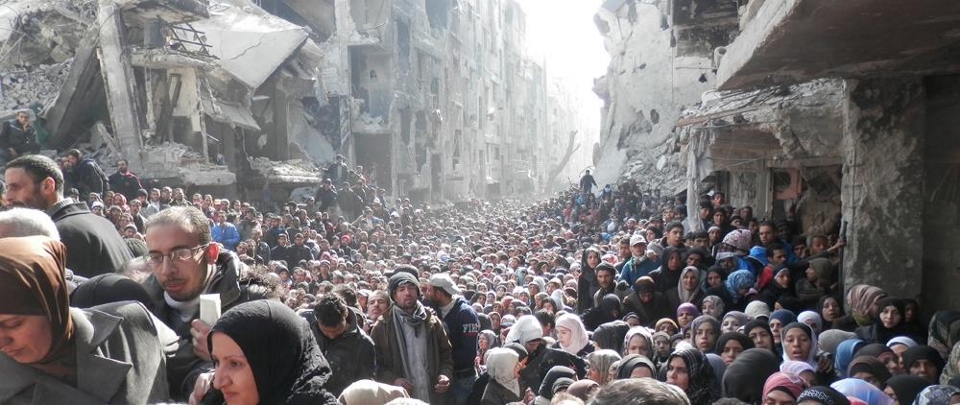
from IRIN
LONDON — At precisely the same time as aid lorries pulled into the besieged Syrian village of Madaya on Jan. 11, too late to save those who had already starved to death, convoys also entered the besieged areas of Fua and Kefraya. The timing was no coincidence. Last week's deal to allow aid into Madaya, which is surrounded by forces loyal to Syrian President Bashar al-Assad, including Hezbollah fighters, was more of a swap by warring parties than a humanitarian gesture: the same militant group inside Madaya surrounds Fua and Kefraya.
That this was the only way the war's belligerents could agree to rescue the estimated 42,000 civilians of Madaya, who had reportedly been eating spiced water and tree leaves, points to the complications of delivering aid through a blockade.
And the small village on the Lebanese border is not an isolated case. In the fifth year of Syria's war, depending on who you ask, there are anywhere between 393,700 and 2 million people living under siege and in desperate need of help.
As aid trucks brought relief to Madaya, IRIN went looking for information on sieges, and found out that even the simplest questions don't have easy answers.
'THE POWER TO DEFEND OUR TERRITORY'
Indigenous Communities Win Consulation Law in Guatemala
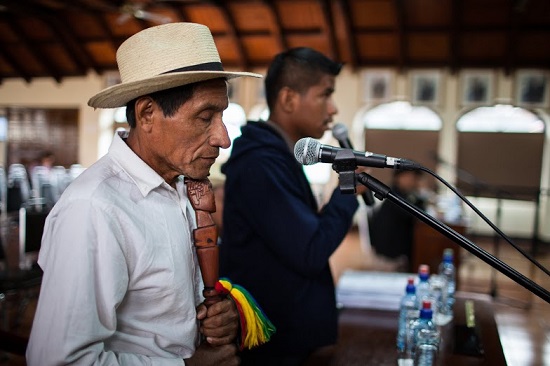
by Jeff Abbott, Upside Down World
On September 10, the Guatemalan Constitutional Court ordered the suspension of licenses for the construction of the Vega I and Vega II hydroelectric projects in the Ixil territory. The court made the order following the failure of the company to consult the indigenous communities prior to the issuing of permits for the project owned by the Spanish firm Hidroxil, S.A.
The Constitutional Court ordered the Ministry of Energy and Mining to "take the necessary measures to ensure that the consultation of affected and interested indigenous communities is practiced in accordance with applicable international standards, concerning the installation of hydroelectric power plant La Vega I." The court order stated that such consultation "should be seen as an intercultural dialogue in good faith, in which consensus and mutual accommodation of the legitimate interests of the parties is sought."
The two hydro projects were initially approved in 2011, and would have affected the Xamalá and Sumalá rivers in the municipality of Santa Maria Nebaj. Indigenous authorities had first issued filed the cases against the hydro projects in 2012. The authority had requested that the court annul Agreement 99-2011, which was signed during the administration of Álvaro Colom in 2011, and allowed the Spanish firm to construct the Vega project. The community leaders were troubled by the firm's lack of respect for the community's rights upon arrival.
RAQQA CIVILIANS ON THE LINE

by Annie Slemrod, IRIN
JERUSALEM — The northeast Syrian city of Raqqa is a crucial power centre for the so-called Islamic State, important enough that many call it the group's "capital" and France chose to bomb it repeatedly as its rejoinder to the Paris attacks. Speaking Nov. 16, the day after French warplanes struck the city, President François Hollande promised to step up the military campaign against IS and "destroy" the group.
No civilians were reported killed in the overnight strikes but plenty remain in the area. How are they getting by? Precious little information makes it out of IS territory, but this is what we could establish...
INDEPENDENCE HERO TO OPPOSITION ICON
Hocine Ait Ahmed, Algeria's Voice of Conscience, Passes On
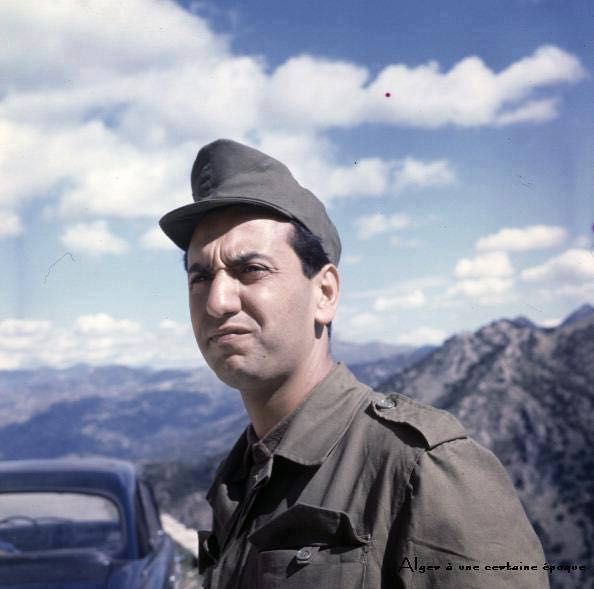
by Mansour Bensahnoune Ulhadi, MAK USA
Hocine Ait Ahmed, a hero of Algeria's independence struggle and later a leading opposition figure, died in Switzerland at the age of 89 on Dec. 24. A founding member of the resistance against French colonial rule, he would break from the post-independence regime over its growing authoritarianism—and especially its treatment of his Berber (Amazigh) people of the Kabylia region in Algeria's mountainous east. Mansour Bensahnoune Ulhadi, coordinator of the US branch of the Kabylia Self-Determination Movement, offers this remembrance.
It is with sadness that we heard of the passing of the Kabyle leader Hocine Ait Ahmed. One of the early leaders in the Algerian movement for freedom from French colonialism, his vision for freedom, justice and democracy got him arrested and jailed by both the French and then the new Algerian regime. He was first arrested when the plane transporting him from Morocco to Tunisia was intercepted and forced to land by the French air force in 1956. He would later be jailed by the Algerian government, when he stood up for democracy, justice and freedom for all. In 1963, one year after independence, he formed the country's first opposition party, the Front des Forces Socialistes or FFS. He was backed by the army regiments of Kabylia, a military district called Wilaya III. The Arab regime led by the traitor Ben Bella attacked Kabylia, and the war between the Arabs and the Kabyles lasted two years. The war ended the day he was captured in 1965, marking a defeat for the Kabyle people and democracy in Algeria. But he escaped an Algerian jail later that year, and continued his fight for freedom to the last days of his life.
D.I.Y. IN DAMASCUS
Rooftop Gardens in Syria's Besieged Neighborhoods

by Youmna al-Dimashqi, Syria Deeply
Rebel-held areas on the outskirts of Damascus have endured more than two years of government blockades aimed at making them surrender or face the prospect of starvation. Disease and malnutrition run rampant and food is scarce.
As in many other such areas across the country, some residents of these besieged areas have mustered the will and energy to adapt and survive, often in ingeniously creative ways.
Notably, rooftop gardens are popping up across the towns that are allowing people to find new ways of feeding themselves and their families. Green patches now dot the rooftops of southern Damascus neighborhoods like Yelda, Babila and Beit Sahem, areas of the capital that have been under government-imposed siege for nearly 24 months.
REFUGEES DEFY CRACKDOWN IN TURKEY

by Andrew Connelly, IRIN
The gloomy streets of Basmane in the Turkish coastal city of Izmir have long been associated with bordellos and drug dealing, but this year it is the smuggling of souls that has become the neighbourhood's key nefarious industry. Compared to the summer months when Izmir was the main departure point for the roughly 5,000 refugees setting off for the Greek islands by boat every day, the city is relatively quiet. Winter temperatures and rougher seas have deterred some. Following a recent agreement between the EU and Turkey, in which the former will pay the latter €3 billion to stem the flow of refugees into Europe, many more may soon be forcibly prevented from making the journey.
Amer twirls amber-colored prayer beads outside one of Izmir's numerous hotels. With a black money-belt strapped around his waist, athletic shoes and a heap of rucksacks piled up on the floor next to him, his purpose in the city is easy to guess, and sheepishly he admits: "I'm waiting here to swim to Europe! Well, hopefully by boat anyway."
CLIMATE CHANGE MIGRANTS OF BANGLADESH
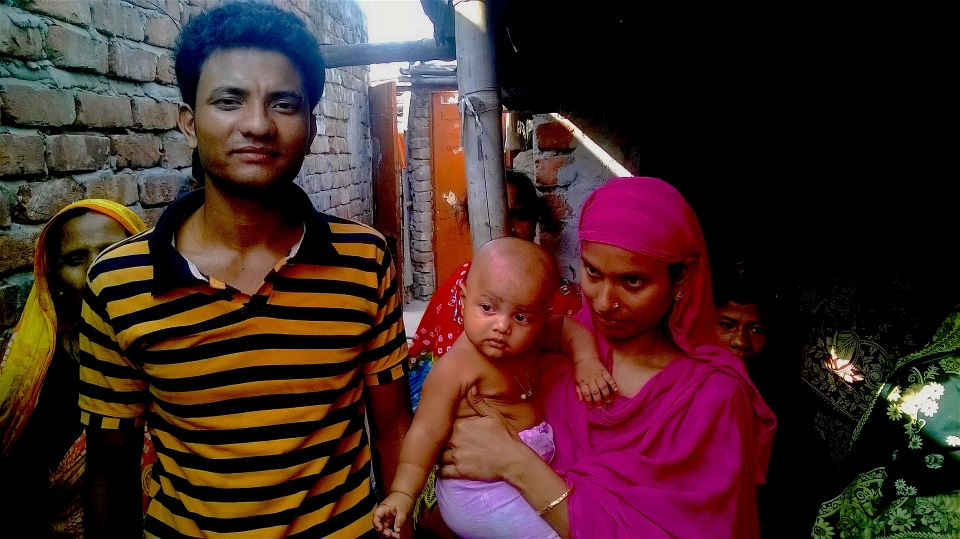
by Mubashar Hasan, IRIN
DHAKA — Al-Amin used to be a rice farmer in the fertile plains of Bangladesh's vast Ganges Delta, but the river washed his land away and now he pulls a rickshaw in a slum in the sprawling capital, Dhaka.
Al-Amin, who uses just one name, is among the approximately 350,000 people that the World Bank estimates migrate to Dhaka each year. Most of them come from the delta, where advancing water levels, increasingly frequent storms and the rising salinity of the soil are destroying farmland. Al-Amin now lives with his family of seven in a one-room shack in a crowded slum called Bhola, which is named after the district that most residents left when their way of life eroded with the land.
Al-Amin's house is still there, but now it sits deserted next to the riverbank where his farm used to be. "We don't go back home in the holidays as there is no home that we can return to," he told IRIN.















Recent Updates
15 hours 49 min ago
16 hours 12 min ago
16 hours 22 min ago
16 hours 33 min ago
1 day 10 hours ago
1 day 10 hours ago
2 days 16 hours ago
3 days 11 hours ago
4 days 4 hours ago
1 week 1 day ago